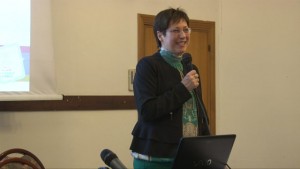
The project CRESCERE – Creating the empowerment to research for excellence through care experiences narratives aimed to collect, through Narrative Medicine tools, narratives of children and adolescents with GH deficit, of their families and of expert referents in care centers. The objective was to know and illustrate the life of people directly facing this condition and of who is close to them, to comprehend needs and expectations, to identify good practices and interventions useful to improve management of dedicated care paths. We host the interview to Cinzia Sacchetti, president of A.Fa.D.O.C. Onlus (Association of Families of people with Growth Hormone Deficiency and other pathologies).
Q. In your experience, which are the weak points and the strong points in the care relationship with people with GH deficit?
CS. We are an Association, we have an indirect experience reported us by parents and families. The first weak point is the fear of side effects: before and during the therapy, there is always this worry. Another criticality is represented by loneliness: in the association context, this aspect is less felt, because it is shared with other people. Even if not everyone believes this sharing as appropriate, sometimes people prefer to keep this feeling. For children, the main criticality is undoubtedly the duration of the therapy, in addition to the fact that it is an invasive therapy – it is an injection, even if it does not hurt so much, it disturbs anyway. A strong point is to see expected results as realized: this is appreciated, and it ensures that weak points will be passed. For parents, sharing their experience is a strong point allowing to well proceed in the therapeutic path; furthermore, during our meetings families with children can confront with parents of adolescents, they can see the progression of the pathway.
Q. The project CRESCERE used Narrative Medicine tools: which potentials did it bring? Did you recognize yourself in Narrative Medicine?
CS. We recognize ourselves very much. In our association, we have insisted for this kind of medicine since many years. Narrative is the base of our relationship with families: the first call they do, it serves precisely to address anxiety, fears, and feelings – at the phone people narrate themselves. Narrative Medicine is very positive, we are glad that it is starting to be applied, because it takes care of the person globally; a practice that we lost, especially with all these specialists, it looks like cutting the person in many little sections. With Narrative Medicine we return to the global care of the person, not only for stature: this is the potential Narrative Medicine brought in cares.
Q. What did the use of Narrative Medicine involve by the aspect of the communication in healthcare?
CS. According to what was reported us, as for patients and their families, the result was surely very positive: they observed more consideration, more willingness from physicians, and this gives more trust. Narrating ourselves, staying in contact with doctors makes us feel more considered: the contrary of the hasty visit. This creates a relationship of trust with the doctor, we accept the therapy and we go on more serenely. I was very satisfied by the Consensus Conference, and I hope that the CRESCERE project will become actually a practice in all the hospitals. It would be important the association to assume a function of support, in order to satisfy those questions the doctor has not time (or capability) to address, it would be an advantage even for physicians. The association must be more involved, also for supporting in the first visits and for communicating the diagnosis: if communication is done in the best way, all the rest is a consequence, also the acceptation of the therapy.
